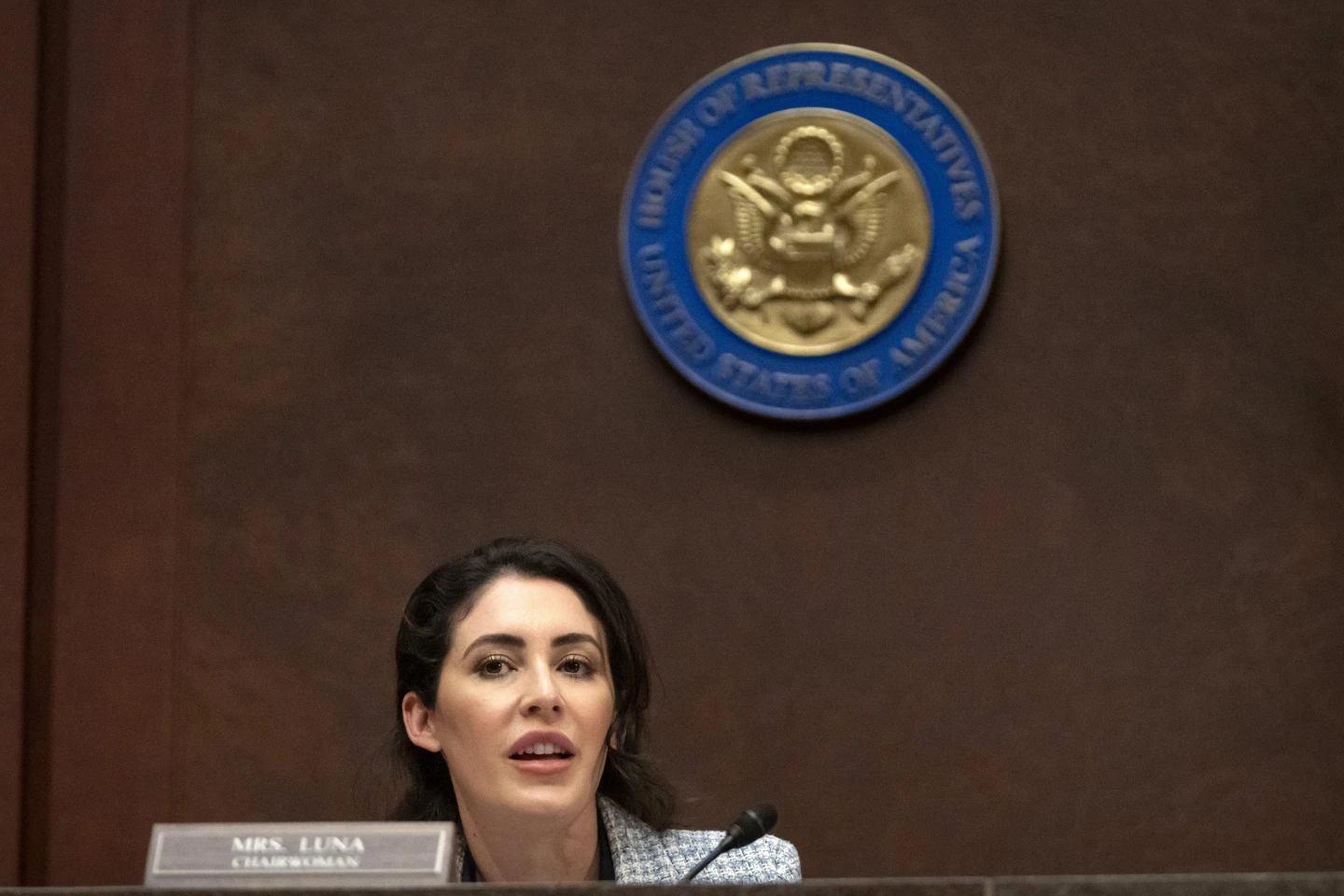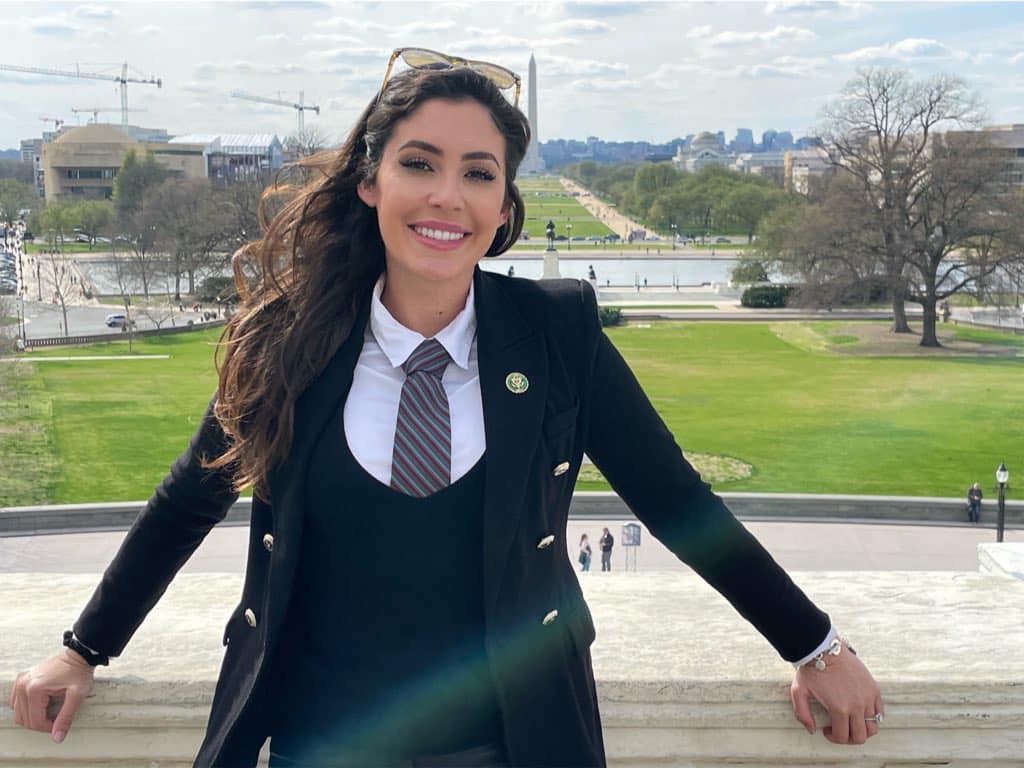With legislation continuing to move through the House — even as the issue is stalled in the Senate — opposition to a measure that would decouple live horse racing from slot machine and card room permits continues to grow.
While that opposition includes individuals affiliated with the industry — from veterinarians to people who transport horses — the largest voice in the room remains the Florida Thoroughbred Breeders and Owners Association (FTBOA) and its chief executive, Lonny Powell.
The group has maintained throughout committee hearings that its opposition is rooted in preserving the thoroughbred racing industry, and the countless interests that could not function without live racing. But its opposition ignores key facts and data and is, at least at times, an exercise in hypocrisy.
At issue are two measures proposed this Legislative Session that would decouple the state’s two live racing thoroughbred tracks: Tampa Bay Downs and Gulfstream Park. That means the tracks would be able to maintain permits to host slot machines and card rooms without being required to also host a minimum number of live horse races each year.
Thoroughbred race tracks are the only parimutuel facilities in Florida that were not already decoupled under a 2021 law (SB 2A).
A Senate version of the measure (SB 408) was temporarily postponed at the Appropriations Committee on Agriculture, Environment, and General Government Tuesday. But the same day, a House version (HB 1467) cleared the Commerce Committee, teeing it up for the full House floor and paving the way for a potential vote despite the Senate’s reluctance on the issue.
Some lawmakers, including Senate Democratic Leader Jason Pizzo, have already raised questions about the industry’s ongoing need for subsidies, pointing to sharp declines in breeding statistics.
During a recent committee hearing on the Senate bill, Pizzo asked for clarification about claims “that business is going great,” specifically whether the Jockey Club — which has released troubling data for the horse breeding industry in Florida — is a reputable publication, setting up a zinger.
“Certainly it is,” responded Tod Wojciechowski, Director of Sales for the Ocala Breeders’ Sales Company and an opponent of the bill.
Pizzo then launched into data from the Jockey Club showing a 60% decline in mares bred of Florida stallions over the last decade, and a 51% drop over the same period in Florida’s foal crop. Wojciechowski acknowledged that the numbers are accurate.
And the drop means the industry needs subsidies.
Last year, Gov. Ron DeSantis signed legislation establishing permanent yearly distributions of $27.5 million “to promote breeding and racing horses.”
But what hasn’t been addressed is the FTBOA’s role in those subsidies, whether directly or indirectly, or its use of its revenue streams in general.
The FTBOA collects 10% of gross receipts deposited into its Awards Account used to administer the payment of awards to race winners and placers and for general industry promotion. The FTBOA also earns additional revenue from horse breeders and owners required to register their horses with the group, which amount to significant fees that are required to receive awards and incentives.
From 2011 until 2023, the group brought in $29 million in revenue, including $1 million in membership dues, $19 million from registrations and administrative fees, and $7.6 million from slots and electronic wagering under an agreement with the state that began in 2014, according to 990 filings that Florida Politics reviewed.
During that same time, the group spent nearly $10 million on executive compensation and employee benefits and $3.1 million on lobbyists, consultants and lawyers. The FTBOA spent just $1.7 million on “advertising/promotion” of the industry.
And its CEO, Powell, has earned more than $3.1 million since he was tapped to run the nonprofit in 2012. That includes more than $283,000 in untaxed benefits, $165,000 in bonuses and $98,000 in deferred compensation, according to the 990s reviewed.
Yet the industry has continued its decline. In addition to the data Pizzo provided, Florida Jockey Club stats also show a drop in racing, with 3,383 races in 2012 to just 2,688 in 2023, a 20% drop.
The House, meanwhile, seems to recognize problems with the FTBOA’s facilitation of state funding to prop up the industry.
The lower chamber is seeking in a tax proposal (PCB WMC 25-02) an amendment that would maintain the subsidy, but clarify its uses to ensure it benefits the industry and not just the Florida Thoroughbred Breeders’ Association.
It strikes the Association from existing statutes, removing $5 million specifically directed to the Association. It also removes the Association from references to funding directly for Tampa Bay Downs and Gulfstream Park and removes the requirement that horses be registered with the Association.
Meanwhile, there is at least some hypocrisy at play in critics’ opposition to the decoupling legislation. In 2014, Powell was among those who negotiated and promoted a decoupling deal to allow Genting to build an off-track casino in Miami.
Powell, as with others, has also maintained that decoupling thoroughbred tracks in Florida would kill jobs — there are more than 33,000 according to the American Horse Council. But many of those jobs are either low-income, part-time or are supported by immigrant labor.
Graham Motion, a horse trainer, told the horse racing publication Blood Horse earlier this year that 80%-90% of the horse racing industry’s labor force are foreign workers. The comments came in opposition to President Donald Trump’s crackdown on immigrant worker visas.
The FTBOA and Powell were among those opposing Trump’s position.
The House version of the decoupling measure includes an amendment to the original bill, sponsored by Republican Rep. Adam Anderson, that does provide some protections for the thoroughbred horse racing industry.
That includes a five-year guarantee that racing will continue at Tampa Bay Downs and Gulfstream Park, based on a three-year notice requirement before ending racing that cannot begin for at least two years. The Senate bill goes even further, with a seven-year window.
Those concessions have done nothing to quell the FTBOA’s opposition. In a statement following Tuesday’s House Commerce Committee vote, the group called it “toxic decoupling language” and lamented that it would “decimate Florida’s homegrown Thoroughbred industry.”
Post Views: 0

 Entertainment8 years ago
Entertainment8 years ago
 Politics8 years ago
Politics8 years ago
 Entertainment8 years ago
Entertainment8 years ago
 Entertainment8 years ago
Entertainment8 years ago
 Tech8 years ago
Tech8 years ago
 Tech8 years ago
Tech8 years ago
 Tech8 years ago
Tech8 years ago
 Tech8 years ago
Tech8 years ago










